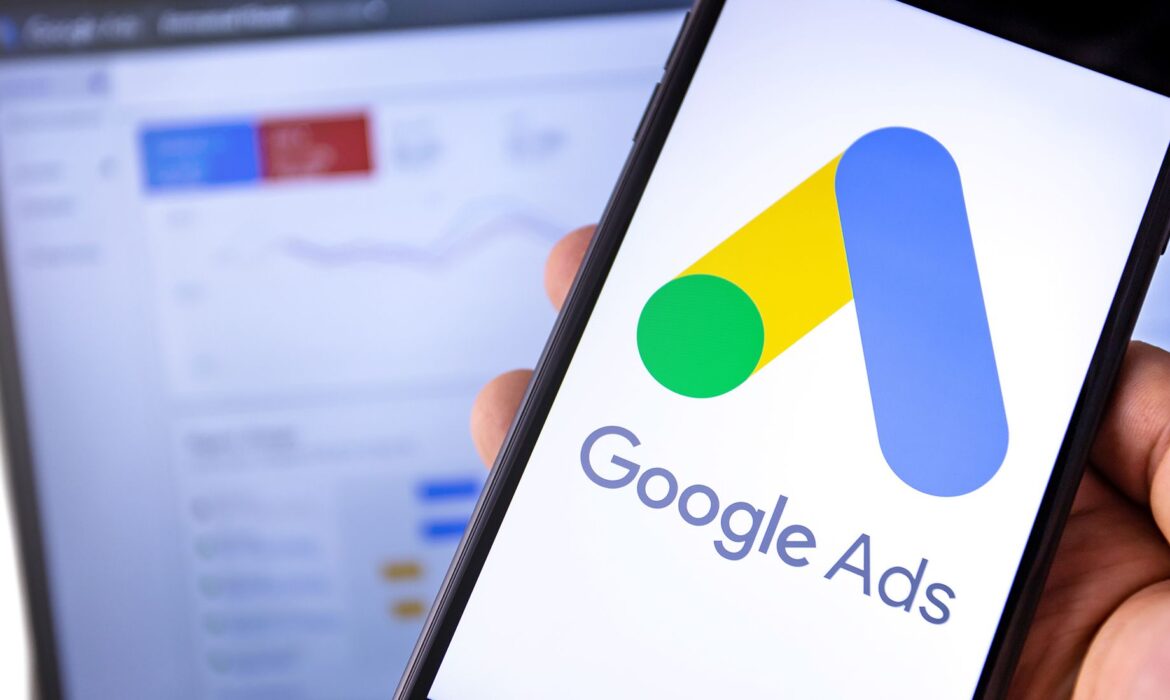The Effectiveness of PPC Ads for Small and Large Businesses
In the highly competitive digital landscape, pay-per-click (PPC) advertising has emerged as one of the most effective tools for businesses of all sizes. Whether you’re a small business aiming for local visibility or a large enterprise targeting national or global markets, PPC ads deliver fast, measurable, and scalable results.
What Is PPC Advertising?
PPC is a digital marketing model where advertisers pay a fee each time their ad is clicked. The most common platforms for PPC campaigns include Google Ads, Meta Ads (Facebook/Instagram), LinkedIn Ads, and YouTube Ads. These platforms allow businesses to appear directly in front of users actively searching for relevant products or services.
Why PPC Works for Small Businesses
For small businesses, budget and reach are often limited. That’s where PPC shines:
- Immediate Visibility
Unlike SEO, which takes time to build, PPC places your business at the top of search engine results instantly. - Budget Control
Small businesses can set daily or monthly limits, ensuring cost-effective marketing without overspending. - Highly Targeted Campaigns
Target by location, device, keyword, age, or interests to attract high-intent customers ready to convert. - Performance Tracking
Tools like Google Ads Dashboard and Meta Business Suite provide real-time insights, helping you refine your campaigns for better ROI.
Why PPC Is Equally Effective for Large Enterprises
For large businesses, PPC supports brand scalability, multi-product marketing, and cross-channel visibility:
- Market Domination
Bid on high-competition keywords to outpace competitors and dominate SERPs. - Advanced Campaign Strategies
Use A/B testing, dynamic remarketing, and audience segmentation to run intelligent, data-driven campaigns. - Multi-Platform Reach
Run integrated campaigns across Google, YouTube, and social media platforms to ensure consistent brand visibility. - High ROI at Scale
With bigger budgets and refined analytics, large businesses can maximize returns through strategic bidding and conversion optimization.
Key Benefits of PPC for All Businesses
- Quick Results & Fast Lead Generation
- Precision Targeting Based on User Intent
- Measurable ROI & Campaign Insights
- Boosts Website Traffic & Sales
- Complements SEO & Other Marketing Efforts
Final Thoughts
Whether you’re a growing startup or an established brand, PPC advertising offers unmatched value. With precise targeting, real-time performance data, and budget flexibility, PPC enables businesses to reach the right audience at the right time. In a crowded digital world, PPC isn’t just a tactic—it’s a competitive advantage.
Why Every Business Needs a Website or Landing Page for Effective Marketing
In the digital-first world, having a website or landing page is no longer optional—it’s essential. Whether you’re running an e-commerce store, a service-based business, or a franchise, your online presence begins with a well-structured, mobile-friendly, and fast-loading website or landing page.
First Impressions Matter
Your website is often the first touchpoint between your brand and a potential customer. A professional website builds credibility, creates trust, and reflects your brand identity. With over 70% of consumers researching businesses online before making a decision, a digital presence is a must for brand legitimacy.
Marketing Without a Website Is Like Fishing Without a Net
- Websites provide comprehensive brand and service information, engaging users across multiple touchpoints.
- Landing pages are laser-focused, single-goal pages built to maximize conversions for specific campaigns like lead generation, event registrations, or product launches
Key Benefits of Having a Website or Landing Page
- 24/7 Accessibility
Unlike physical stores, websites operate round the clock, allowing customers to interact with your brand at their convenience. - Higher Conversion Rates
A well-optimized landing page with strong CTAs, compelling headlines, and trust signals can boost conversion rates significantly. - Search Engine Visibility
With the right SEO strategy, your website can rank on Google, driving organic traffic to your business and increasing inbound leads. - Performance Tracking & Analytics
Platforms like Google Analytics, Hotjar, and Meta Pixel help track user behavior, measure campaign effectiveness, and guide strategic decisions. - Brand Authority
A website with informative blogs, testimonials, and service pages enhances your brand authority and builds trust over time. - Integration with Digital Marketing
Your site becomes the hub for integrating tools like CRM systems, email marketing, and chatbots, streamlining your digital sales funnel.
A Smart Investment for Long-Term Growth
Whether you choose a full website or a high-converting landing page, both serve as the foundation of your digital marketing strategy. With rising customer expectations and digital competition, a poor or absent web presence could cost you valuable leads and revenue.
Final Thoughts
A website or landing page is more than just an online brochure—it’s your best-performing sales tool, working 24/7 to capture attention, build trust, and drive conversions. If you’re investing in marketing but skipping a solid digital destination, you’re leaving money on the table. Build smart, market smarter.
Is Google Ads Worth It? Everything You Need to Know for Smarter Advertising
In today’s digital marketplace, Google Ads stands out as one of the most powerful platforms for reaching targeted audiences and driving real results. But many business owners still ask, are Google Ads worth it? The short answer is yes, if they’re used strategically.
What Is Google Ads in Digital Marketing?
Google Ads is Google’s paid advertising platform that lets businesses show ads across search results, YouTube, Gmail, and millions of websites in the Google Display Network. It helps you connect with users who are actively searching for what you offer—at the right time and place.

How Do Google Ads Work?
Google Ads uses a pay-per-click (PPC) model, meaning you only pay when someone clicks on your ad. Ads are shown through an auction based on keyword bids, ad quality, and relevance. Google scores your ad with a Quality Score, which influences its position and cost.

Where Do Google Ads Appear?
Ads can appear in several places:
- Search Ads: Top of Google’s search results
- Display Ads: Banners on partnered websites
- YouTube Video Ads
- Shopping Ads: Product-based listings with prices


Are Google Ads Free?
No, but they are budget-flexible. Whether you’re spending ₹500 a day or ₹50,000 a month, you control how much to spend. You only pay when users engage with your ads.
Can Google Ads Make Money?
Yes—when managed properly, they generate qualified traffic and conversions. Google Ads works best with the right targeting, ad copy, landing pages, and ongoing optimization. Businesses often see strong ROI and scalable growth through consistent performance tracking.
When Should You Use Google Ads?
Use Google Ads to:
- Launch a new product or service
- Boost seasonal or promotional campaigns
- Gain instant visibility for high-intent keywords
- Compete in search results with established brands

Why Is Google Ads Important?
It delivers:
- High-converting traffic
- Fast, measurable results
- Full control over spending
- Audience targeting by location, device, interests, and more
It also complements your SEO by generating leads while your organic rankings grow.
Can Google Ads Be Videos?
Yes! You can run video ads on YouTube, ideal for brand storytelling, engagement, and product promotion. Video campaigns are a great way to boost brand recall and reach new users visually.
Final Verdict: Are Google Ads Worth It?
Definitely. Google Ads helps businesses of all sizes attract, convert, and grow by appearing where and when it matters most. With the right strategy, it’s one of the most effective tools in your digital marketing toolkit.
The Power of Digital Marketing: Transforming Businesses in the Digital Age
In today’s fast-paced digital era, digital marketing has become the cornerstone of business success. Whether you’re a startup, SME, or an established enterprise, leveraging digital platforms effectively can catapult your brand visibility, enhance customer engagement, and drive sustainable growth.
Why Digital Marketing Matters
With over 5 billion active internet users globally, the digital space offers unparalleled access to potential customers. Unlike traditional marketing, digital marketing is cost-effective, measurable, and highly targeted. It allows businesses to reach their exact audience through platforms like Google Ads, social media, email marketing, SEO, and content marketing.
Core Benefits of Digital Marketing
- Global Reach with Local Focus
Through local SEO and geo-targeted campaigns, even small businesses can dominate local search results while expanding their footprint globally. - Data-Driven Insights
Tools like Google Analytics, Meta Business Suite, and email performance dashboards help analyze consumer behavior, refine strategies, and improve ROI. - Enhanced Customer Engagement
Digital marketing fosters two-way communication. Social media platforms like Facebook, Instagram, and LinkedIn allow brands to interact, receive feedback, and build communities. - Higher Conversion Rates
With optimized landing pages, compelling CTAs, and retargeting ads, businesses can convert interest into sales faster than ever. - Cost Efficiency
Compared to TV or print, digital campaigns offer lower cost per lead and better tracking, making them ideal for businesses with tight budgets.
Key Digital Marketing Channels
- Search Engine Optimization (SEO): Boosts organic visibility on search engines.
- Pay-Per-Click (PPC) Advertising: Instant visibility with targeted keyword campaigns.
- Social Media Marketing (SMM): Builds brand loyalty and drives website traffic.
- Content Marketing: Educates, informs, and nurtures potential leads through blogs, videos, and infographics.
- Email Marketing: Drives engagement with personalized campaigns and automation.
The Future of Digital Marketing
As AI, machine learning, and voice search continue to evolve, digital marketing is becoming even more intelligent and intuitive. Personalization, automation, and predictive analytics will dominate the future, enabling brands to deliver the right message to the right audience at the right time.
Final Thoughts
Digital marketing is not just a trend—it’s a necessity. Brands that embrace its full potential are not only staying competitive but are setting industry standards. By integrating strategic digital campaigns and keeping up with the latest trends, businesses can achieve exponential growth, build lasting customer relationships, and stay relevant in a digitally connected world.








